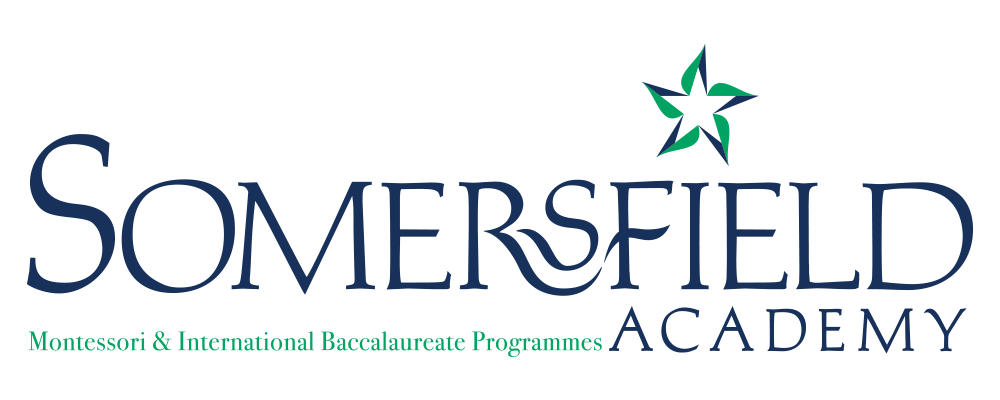Heartbreak and Hope for Students Impacted by Covid-19
May 11, 2021 — Lily Crofts, a student at Somersfield Academy and part of its International Baccalaureate Programme’s inaugural year group, was to have been Belle in the school production of Beauty and the Beast – until Covid-19 forced its cancellation.
Compared to the life-threatening experiences that the virus has inflicted on many of its victims, it could be easy to dismiss the ways that the lives of high school pupils and university students have been dramatically impacted.
In pre-Covid times, the academic challenges were invariably significant, but it is the other aspects of school such as attending the prom, having leading roles in musicals or dramatic productions and heading the school’s teams in everything from sports to debate which form lifelong memories.
For the 2020 and 2021 graduating classes those benefits have been denied and rather than relishing the long-awaited fun and responsibility that hard-earned seniority brings, those students have spent much of their time home, distance learning on Zoom.
Lily Crofts, who was looking forward to graduating this summer as a member of the inaugural year of the International Baccalaureate Programme at Somersfield Academy, is one of those students.
Always enthusiastic about music and dance, she realised an ambition she had held since her primary school years when she was cast in the school’s production of Beauty and the Beast. Better still, she won the lead role of Belle.
Lily set to work to learn the part and rehearsals were under way – until Covid-19 closed the school and forced the cancellation of the show.
She said rehearsals for the production had been going well, but she added: “Once school went online, we were left with the feeling of uncertainty of whether the show would ever happen.”
Lily said the cancellation announced last September was a major disappointment.
She added: “Initially, this was difficult for me as working with my close friends doing something I love was a dream.”
Lily is pragmatic, though. “I don’t have any regrets – I am proud to have been cast as Belle and to have worked hard on this production.”
Distance learning has also presented unique problems for teachers and required some nimble thinking.
The impact on pupil learning is being measured by international organisations such as the Brookings Institution and Unesco and studies have shown the problems around the world have not always been tackled effectively.
Unesco’s findings led them to warn that closing school buildings to pupils carry high social and economic costs, especially for vulnerable and marginalised children.
A rise in dropout rates, poor nutrition – because of the loss of school meals – and gaps in childcare due to the inability of financially stretched parents to provide it, are some of the issues that shuttered schools have created.
Brookings, a US public policy organisation, conducted research that found only “in some ways” an optimistic picture.
Attainment measures for reading showed that on average pupils achieved the same level as the year before the Covid-19 pandemic. But maths was a “less rosy story” with a significant decline in the average performance of pupils.
Somersfield, which offers a Montessori education as well as the IB Diploma programme, addressed the challenge head-on.
The school developed the Star e-Learning Plan which provides two complementary online approaches – “synchronous” learning, which is collaborative, with a group of online learners and usually a teacher, and “asynchronous”, which is learning at any time, not necessarily in a group, but with teacher oversight.
Kate Ross, the head of the diploma programme at Somersfield, said it was ‘turning lemons into lemonade’.
She added the response of pupils to the distance learning programme – designed by “inventive and creative diploma programme staff” – made her “inordinately proud”.
Somersfield has also devised an online programme of life-skills workshops for final year pupils designed to “continue the path from Somersfield to independent living”.
The module includes cooking, budgeting and memory improvement, which Ms Ross said got “a fantastic response from our kids”.
Ms Ross added: “We’d managed to start many of these activities immediately, and the feedback has been so positive – truly an example of our open-minded and resilient Somersfield Academy community, turning the proverbial lemons into lemonade and making memories for this inaugural cohort of diploma programme graduates.”
Lily backed the Star e-Learning Plan.
She said: “The transition to online schooling went well – I personally found the change to distance learning to be lonely at first, though.
But with help from teachers, planning for each day, and hard work she maintained her studies.
Lily, although an Australian national, was born and brought up in Bermuda. Her older brother and sister are studying on the other side of the world in Australia.
Lily said: “Keeping in contact virtually with my family and friends here and overseas made me feel less isolated.”
As well as video chatting with friends, Lily also continued dance and singing lessons on Zoom, which she found was good for her mental and physical health.
But Lily said she could see a silver lining in the restrictions. “This pandemic has shown me how precious relationships with family and friends are.
“I think when Covid-19 first hit many felt a sense of confusion, fear and even anger.
“My last two years of high school have certainly not been as fun-filled as I had hoped, but I am grateful that I am healthy.
“I feel I will certainly appreciate every simple thing I encounter in my future.”


